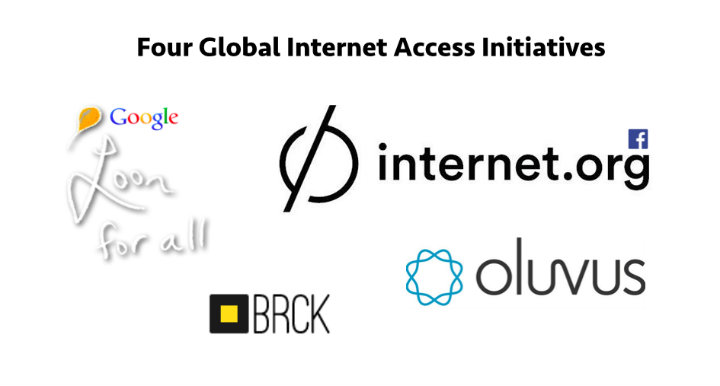In a country where the Queen has her own YouTube Channel, you would think Internet is a free and open space for all, but not exactly.
Because Jordanian authorities believe that “browsing the Internet is a waste of work time and a huge drain on public money,” 48 local news websites were recently blocked in all workplaces. Of the news websites blocked, both government endorsed Petra News Agency and Al Rai newspaper were on the list. The blogger behind The Black Iris of Jordan notes that of the 70 million websites explored during working hours, only 13,000 of those are relevant to the employees jobs. In light of these new online restrictions, the government even ordered “Internet café owners to install surveillance cameras.”
After outcry from media and human rights activist, on August 3rd it was announced that provisions would be made to Jordan’s Cyber Crime Law (Information Systems Crimes Law).
Though the law seeks to tackle serious Internet issues, such as “hacking and illegally obtaining information,” web-based Jordanian new outlets called the law “a major blow to new media,” as they feel the most targeted by this new legislation.
Those whose “posts upset the authorities,” which may include defamatory commentary that — among other things — jeopardizes national security, may suffer consequences ranging from fines to forced labor. According to Ali Ayed, Minister of State for Media Affairs and Communications, the Jordanian government: “respects media and it’s role in monitoring government performance, as long as the criticism of government performance and policies is aimed at advancing the public and national interest.”
The Electronic Media Tracking Committee says: “the policies adopted by Prime Minister Samir Rifai’s government to restrict public freedoms and constrain free press is aimed at ‘pacifying’ Jordanian media.”
Jordan has built a beautiful reputation for itself, in terms of Internet freedom, in comparison to it’s surrounding countries. In a letter to the His Majesty King Abdullah II of Jordan, the Committee to Protect Journalists (CPJ) says: “the law, if you endorse it through a royal decree, would undermine Jordan’s image as a free and open society.” According to Jordanian blogger Batir Wardam: “any full-fledged democracy does not need a press law.”
It was reported that some publishers of local news websites believe the Jordanian regime is acting like an “enemy of the press.” In similar thought, according to the editor of news outlet Khaberni, Mohammad Hawamdeh: “The law was written in an elastic way so the government can interpret and implement it the way it wants and according to its interests.” The main issue at stake here is the government’s ability to regulate speech. But not all feel this way.
According to Al Arab Al Yawm columnist Fahed Kheitan: “the online media’s embrace of the new amendments reflects their satisfaction and ends a state of confrontation between the digital press and the government.” Rani Dababneh was among the slew of bloggers invited to discuss Jordan’s first Cyber Crimes Draw Law, with Marwan Juma, Minister of Information and Communication Technology. Happily surprised by the open and engaged discussion, Dababneh believes Jordan seems to be on the right track, in terms of media advancing beyond in the face of censorship. This was in fact a commendable gesture by Jordanian authorities; to consider the opinions of those to likely be affect most by the law, before making any permanent decisions.
Since freedom of speech and expression comes responsibility, His Excellency Mr. Jumba states: “Criticisms are surly allowed, but no cursing nor offending. i.e. you can publish (in the Cyber World): I disagree with this guy but not I “curse” this guy! If you do then this guy issue a court case, so its just like Real World!” So, His Excellency says that the use of violent banter is not necessary for getting a message across — but vulgarity aside — doesn’t this restrict freedom of speech and expression? Responsible, yes; Realistic, not sure. Regardless of vulgarity, according to editor of Jordanian online news site Ammon, Basil Okur says: “monitoring the law seems like mission impossible… as the Internet is full of millions of posts and comments.”
The law, which “originally allowed authorities to raid offices of websites without obtaining permission from public prosecutors,” has seen suitable amendments, as of August 29th. Many provision have taken face, such as the initial power of authorities to “search of premises and computers without a warrant.” A couple weeks ago, Reporters Without Borders (RWB) saw issues with Articles 8, 9, 12 and so on. Among the many changes made to the final draft of the Cyber Crime Law, Article 12 has been amended, Article 8 has been deleted — in means to keep new sites satisfied and avoid speech regulation —and so on.
Media Freedom Network has a poll posted online that asks: “Do you feel that freedom of expression in Jordan has improved this year?” While 23% firmly believe “Yes”, only 9% say “Somewhat.” While 52% affirmatively vote “No”, 15% say “Had not improved”— the difference between the two — not sure? Have your say, visit the sight and weigh-in.
Only Jordanian time will tell how this will all electronically pan out.
To end on a lighter note, hackers and cyber crimes aside, Jordan’s Queen Ranya — via YouTube — explains how a lot of positive can come from online social medias:
‘Today we have a toolbox of new technologies and social media innovations altering the media landscape… Phones and Facbeook, Blogs and Widgets, Twitter and texting… We can reach every corner of the world; from African villages to the US Congress and we can rally the masses around causes we care about… Social networks can help solve social problems…”


